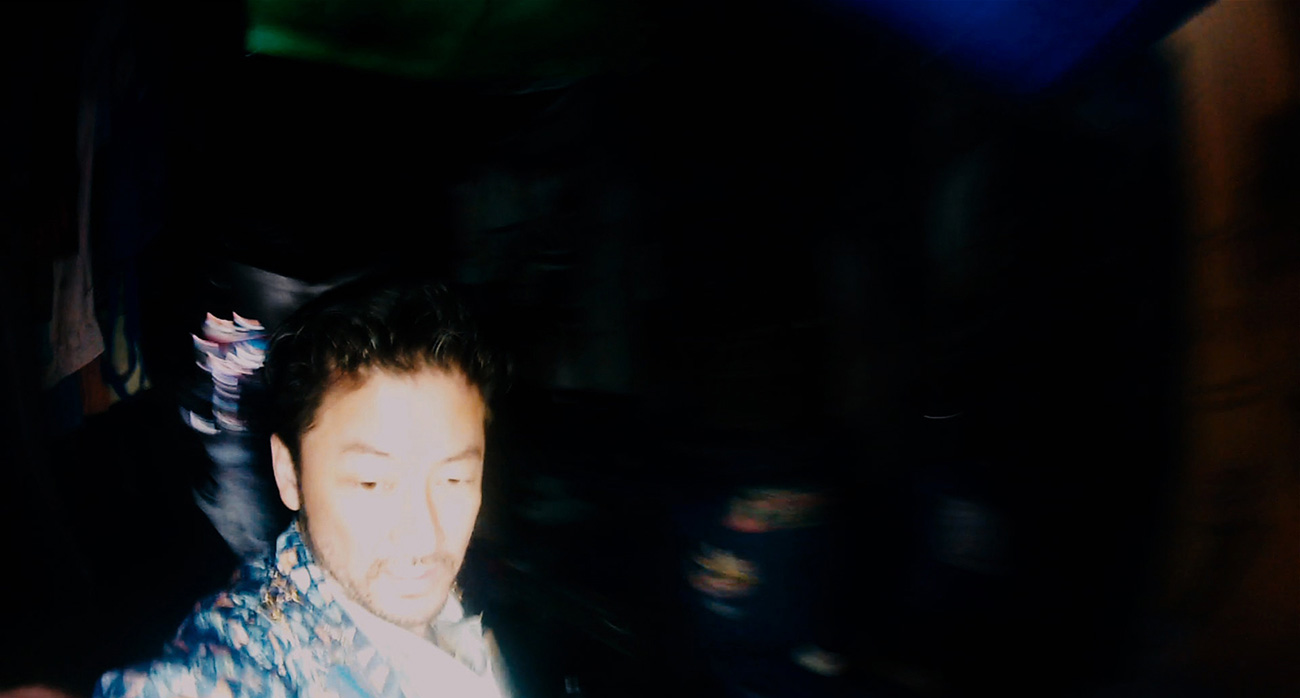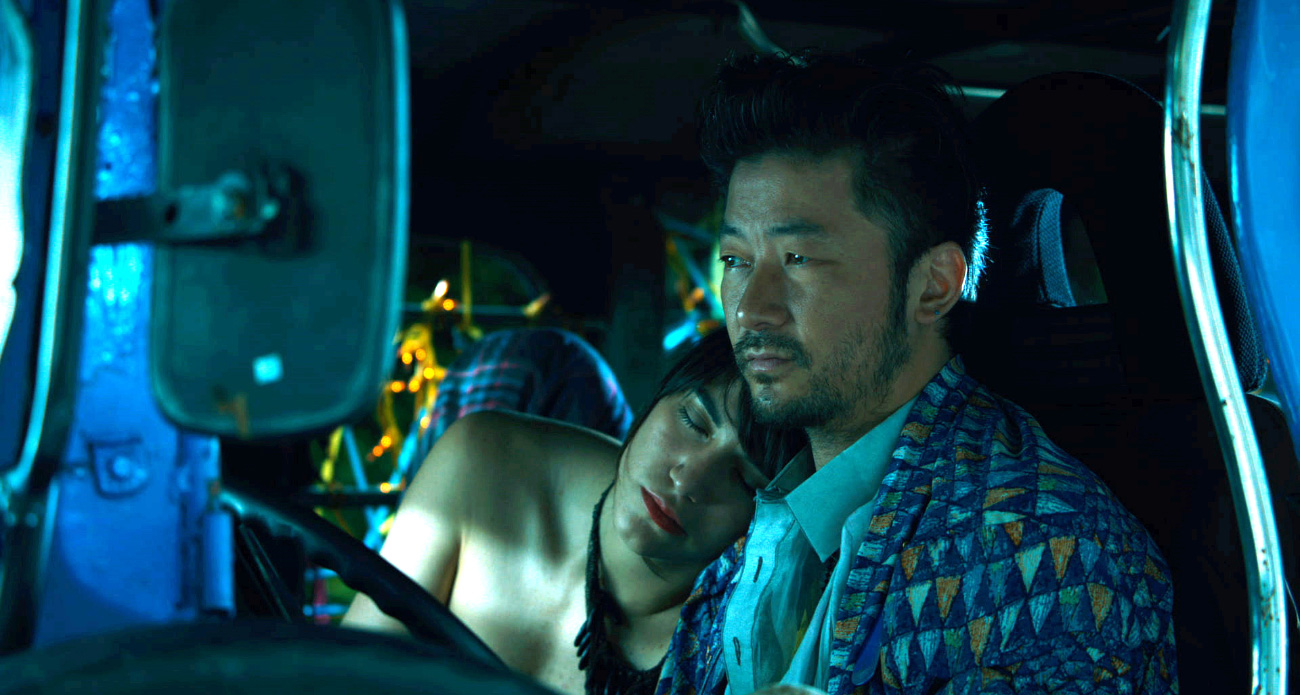Right before the audience is truly embedded into Khavn De La Cruz’s (hereby referred to as simply Khavn) latest feature, Ruined Heart: Another Love Story Between a Criminal and a Whore, it is formally introduced to the film’s major players. An old Filipino ballad accompanies the visuals on screen of characters against a wall as though they were in a police lineup.
Each character walks towards the centre of the frame in slow motion as text appears to identify their role in the film. Japanese icon Tadanobu Asano (Ichi the Killer, Cafe Lumiere) is The Criminal, Mexican actress Nathalia Acevedo (Post Tenebras Lux) is The Whore and the audience make the connection — this is their love story. Legendary Australian cinematographer Christopher Doyle, who lends his expert eye as the film’s DP, focuses in and out of the film’s characters. The entire sequence feels dreamy yet simultaneously “cool” in its approach and it’s in this moment where you feel like what will follow will indeed feel special.

The images and sounds of Ruined Heart are truly hard to forget and, like any madcap fever dream, though these images might not make much sense when you try to piece it altogether, there still remains some level of narrative consistency when trying to recall and relay that information for someone else. At its core, Ruined Heart, the 46th feature from pioneering digital filmmaker Khavn, is simply a film about a hitman who falls in love with his boss’ girl and the consequences that follow it. Not much else is explored outside of this and there doesn’t need to be.
It’s another take on a pulpy story that’s been told before, as Khavn knowingly admits in the full title of his feature, only now it’s been transported to the filmmaker’s vision of the Philippines – a surreal and at times almost dystopic universe where anarchy looks to be a part of everyday life. Add to that the film’s lack of dialogue and what you have in Khavn’s feature is something of a music video – not necessarily a bad thing as it’s an aesthetic that can help to create cinematic wonder in the right hands.
Keep in mind that Wong Kar-wai’s Chungking Express and Fallen Angels were noted for their “MTV aesthetic” and in some ways, Ruined Heart is like the distant Filipino cousin of those great Wong films. There’s a devil may care attitude that the film proudly wears on its sleeve, no doubt a reflection of the filmmaker himself: its rollicking energy, use of music, imagery and surprisingly heartfelt story certainly bring to mind the “rock and roll” aesthetic of those early films from Wong Kar-wai. If you’re someone clamouring for something that feels even vaguely familiar to those aforementioned films, Ruined Heart may feel like a worthy substitute.

Yet where Wong is generally considered to be far more measured in his approach, Khavn is a lot more loose in his direction; almost to a fault. While certainly cool to see a manic Asano running around tight corridors with a Go-Pro camera mounted on his arm, in the grand scheme of things, distractions like these could have easily been left on the cutting room floor and mightn’t have affected the quality of the film. But with Ruined Heart already clocking in at just more than 70 minutes long, this is merely a minor point of criticism for what already is a great little film.
Like Hou Hsiao-hsien’s towering epic, The Assassin, Khavn’s Ruined Heart is pure cinema which will undoubtedly polarise regardless of its content (although in its defence, despite the film’s niche appeal Khavn’s feature is at least more of an accessible experience than Hou’s wuxia picture). Ruined Heart is one of coolest films to emerge this year and given its bravado to forgo conventional storytelling and scripting, the film should absolutely be celebrated for being able to create a transfixing and moving story not with story or dialogue but through its gorgeous shared moments between two lovers.
